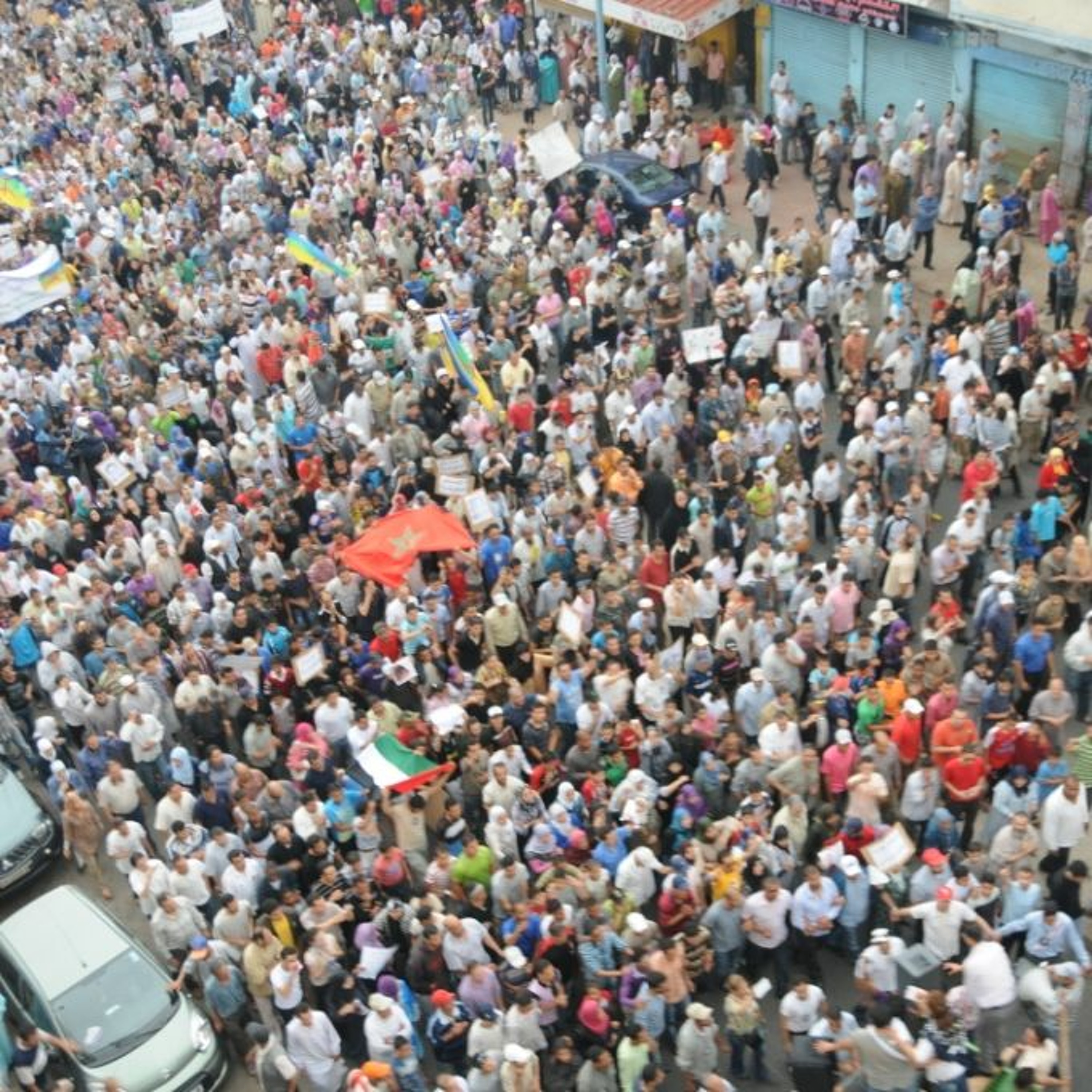
Disillusionment in Morocco’s February 20 Movement
 2018-01-26
2018-01-26
Download
Right click and do "save link as"
E343 | How do we assess fizzling protest movements? How do social scientists account for difficult-to-quantify facets of political engagement like emotion and momentum? In this episode, we discuss ihbat, or disillusionment, in the failures of Morocco’s February 20th movement. Part of the Arab Spring movements across the region, the coalition of groups that comprised February 20th rather quickly ground to a halt a few months later. In a major speech in March 2011, King Mohammed VI pledged major reforms, a new constitution, and a new election. In July of that year, Moroccans voted overwhelmingly in favor of stability and “consultation” and approved the new constitution. The euphoria of the early days of the movement subsided and gave way to feelings of ihbat. But disillusionment, as we discuss here, is not as one-dimensional nor permanent as one might think. Taieb Belghazi and Abdelhay Moudden point towards a possible new direction in political science research that uses literary and artistic sources to get at the emotional aspect of political engagement and organization.
Taieb Belghazi is Professor of Cultural Studies at the Faculté des Lettres at Mohammed V University and Academic Director of the SIT Multiculturalism and Human Rights Program in Morocco.
Abdelhay Moudden is Professor of Political Science at Mohammed V University and the co-founder of the Center for Cross Cultural Learning in Rabat.
CREDITS
Episode No. 343
Release Date: 26 January 2018
Recording Location: Center for Cross-Cultural Learning, Rabat (12/15/2016)
Audio editing by Chris Gratien
Music: Hocine Slaoui – Yal Cahla Special thanks to Kara Güneş for permission to use the composition "Istanbul"
Images and bibliography courtesy of Taieb Belghazi & Abdelhay Moudden available at http://www.ottomanhistorypodcast.com/2018/01/ihbat.html
view more
More Episodes
Ottoman Passports | İlkay Yılmaz
 2024-09-05
2024-09-05
 2024-09-05
2024-09-05
An Ottoman Imam in Brazil | Ali Kulez
 2024-04-11
2024-04-11
 2024-04-11
2024-04-11
Media of the Masses in Modern Egypt
 2023-12-04
2023-12-04
 2023-12-04
2023-12-04
Nasser, Nubia, and the Stories of a People
 2023-12-04
2023-12-04
 2023-12-04
2023-12-04
012345678910111213141516171819
Create your
podcast in
minutes
- Full-featured podcast site
- Unlimited storage and bandwidth
- Comprehensive podcast stats
- Distribute to Apple Podcasts, Spotify, and more
- Make money with your podcast
It is Free
- Privacy Policy
- Cookie Policy
- Terms of Use
- Consent Preferences
- Copyright © 2015-2024 Podbean.com



